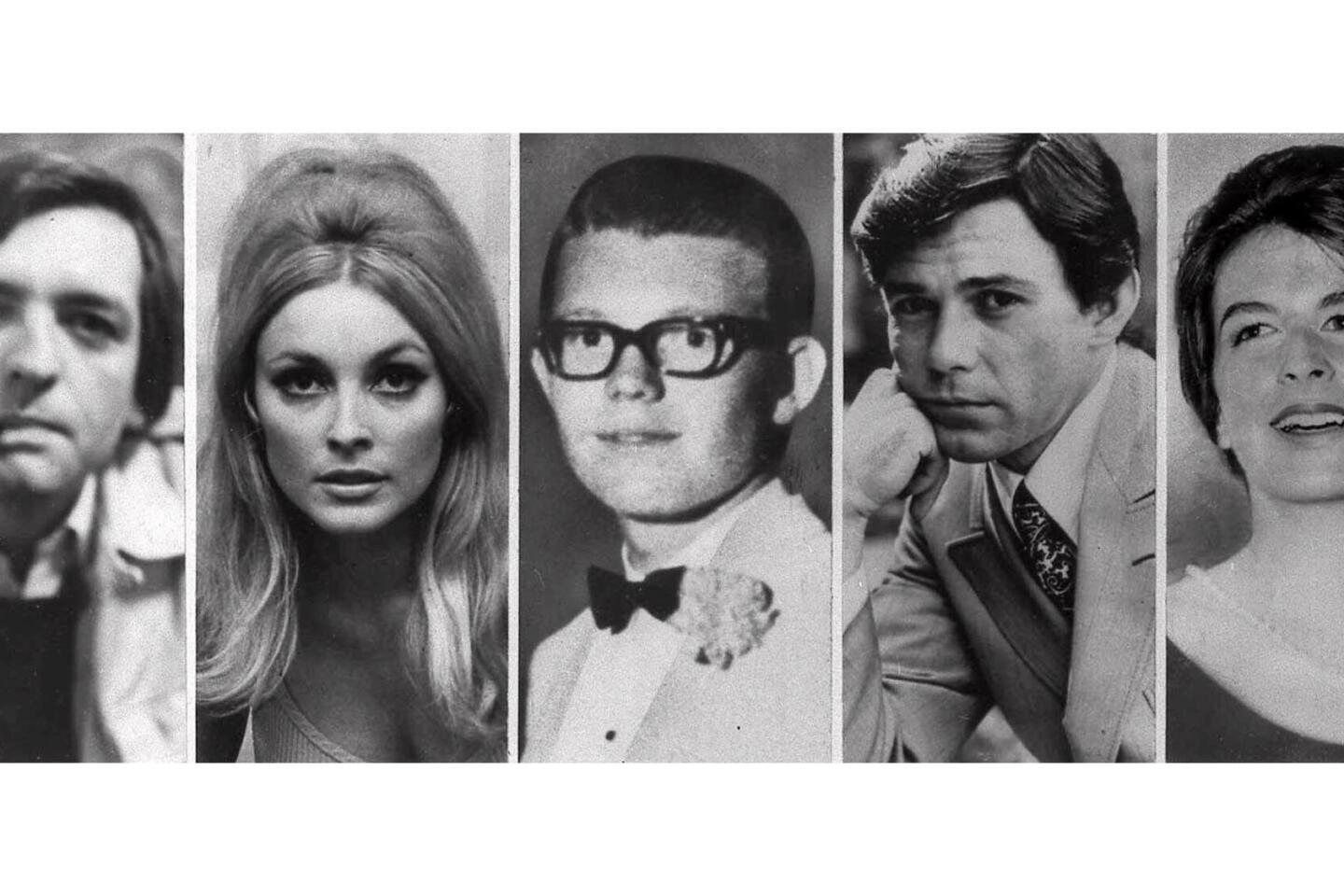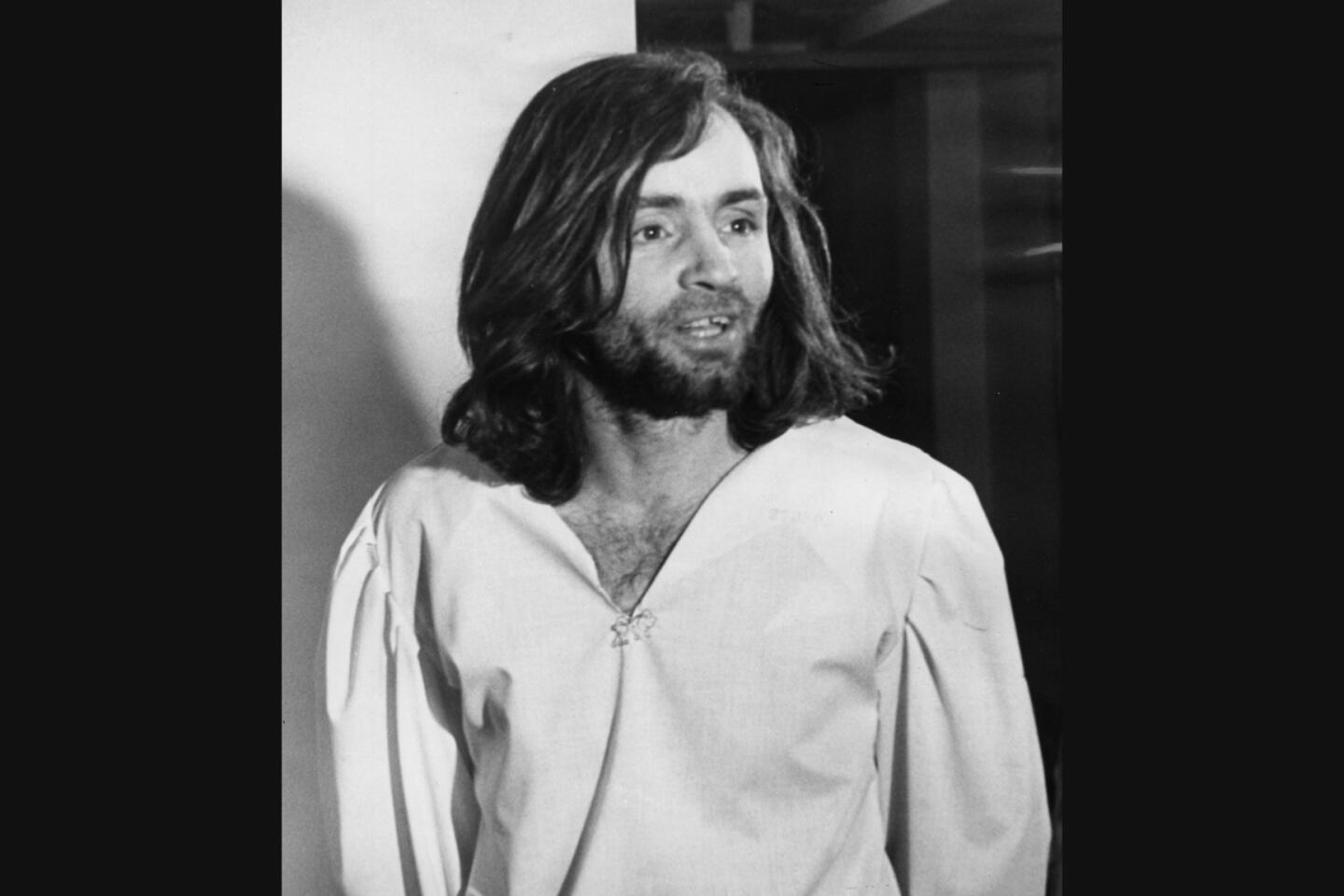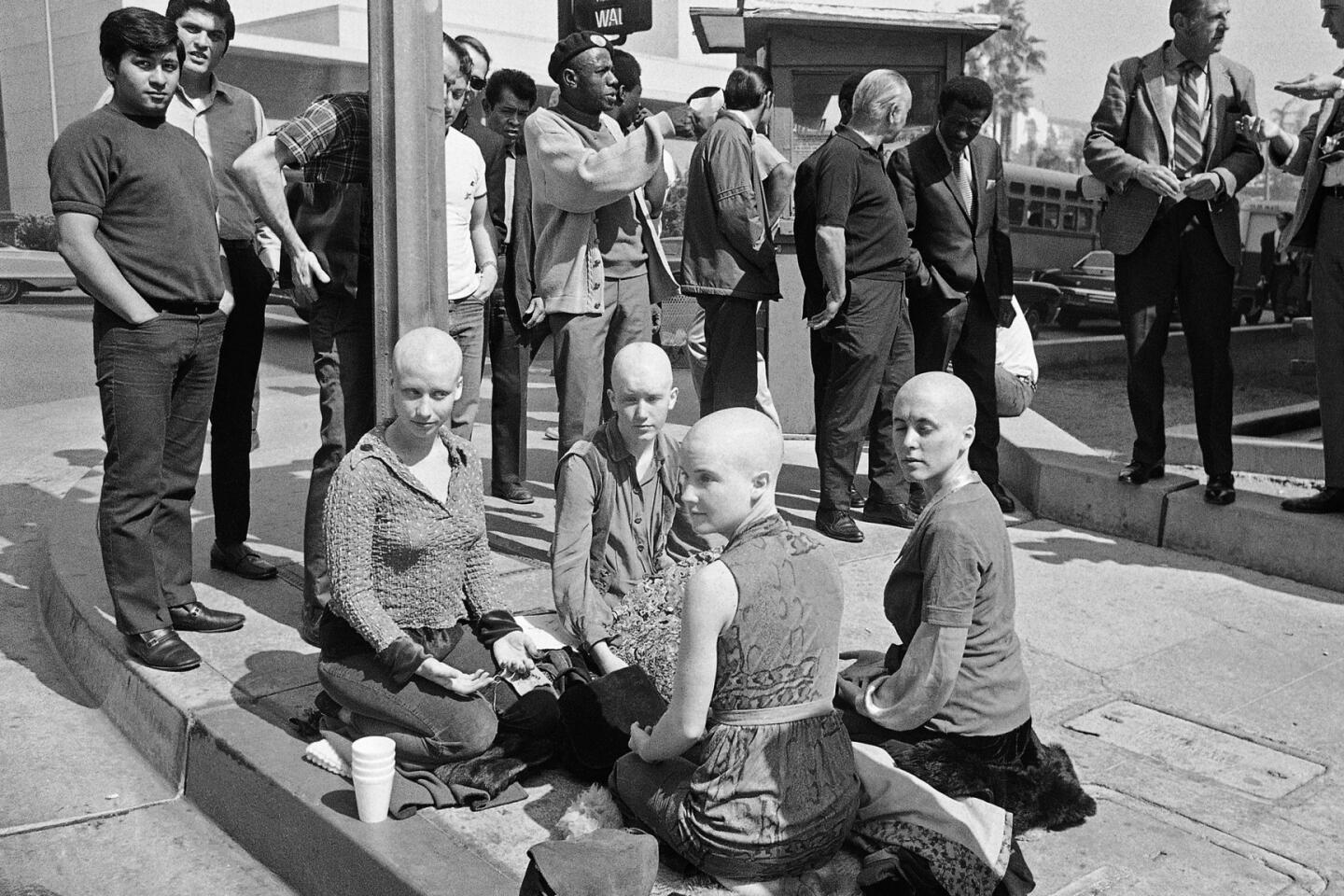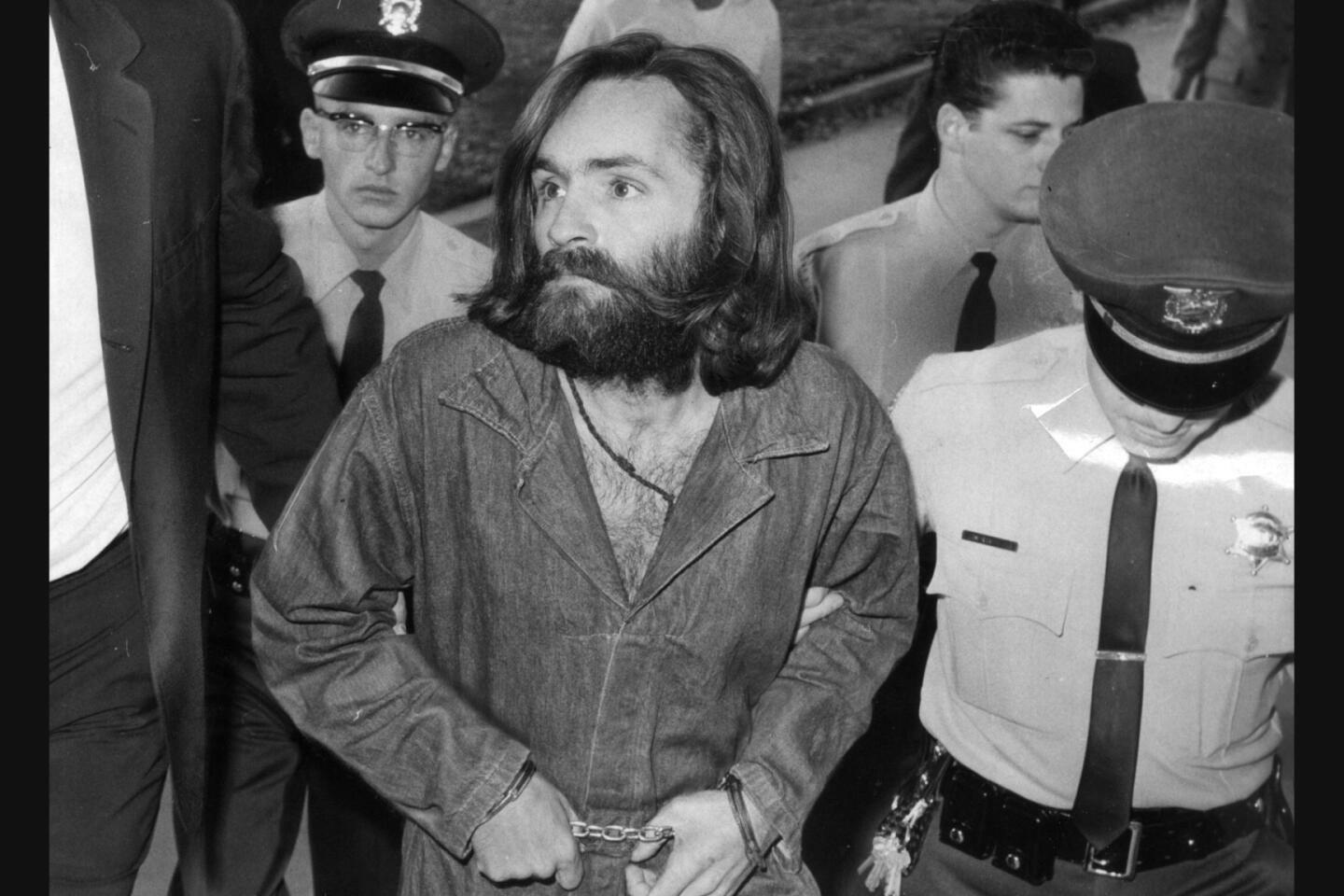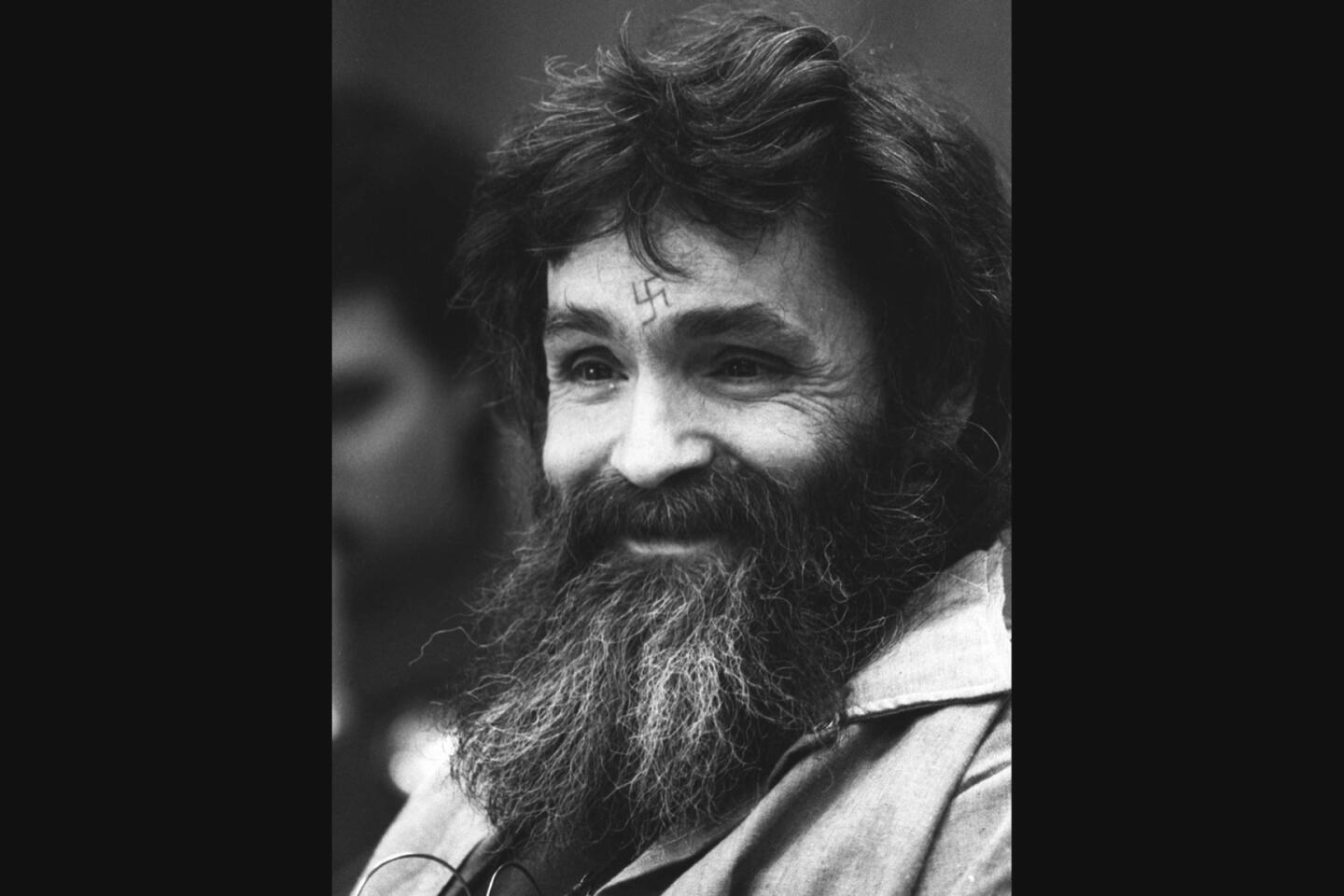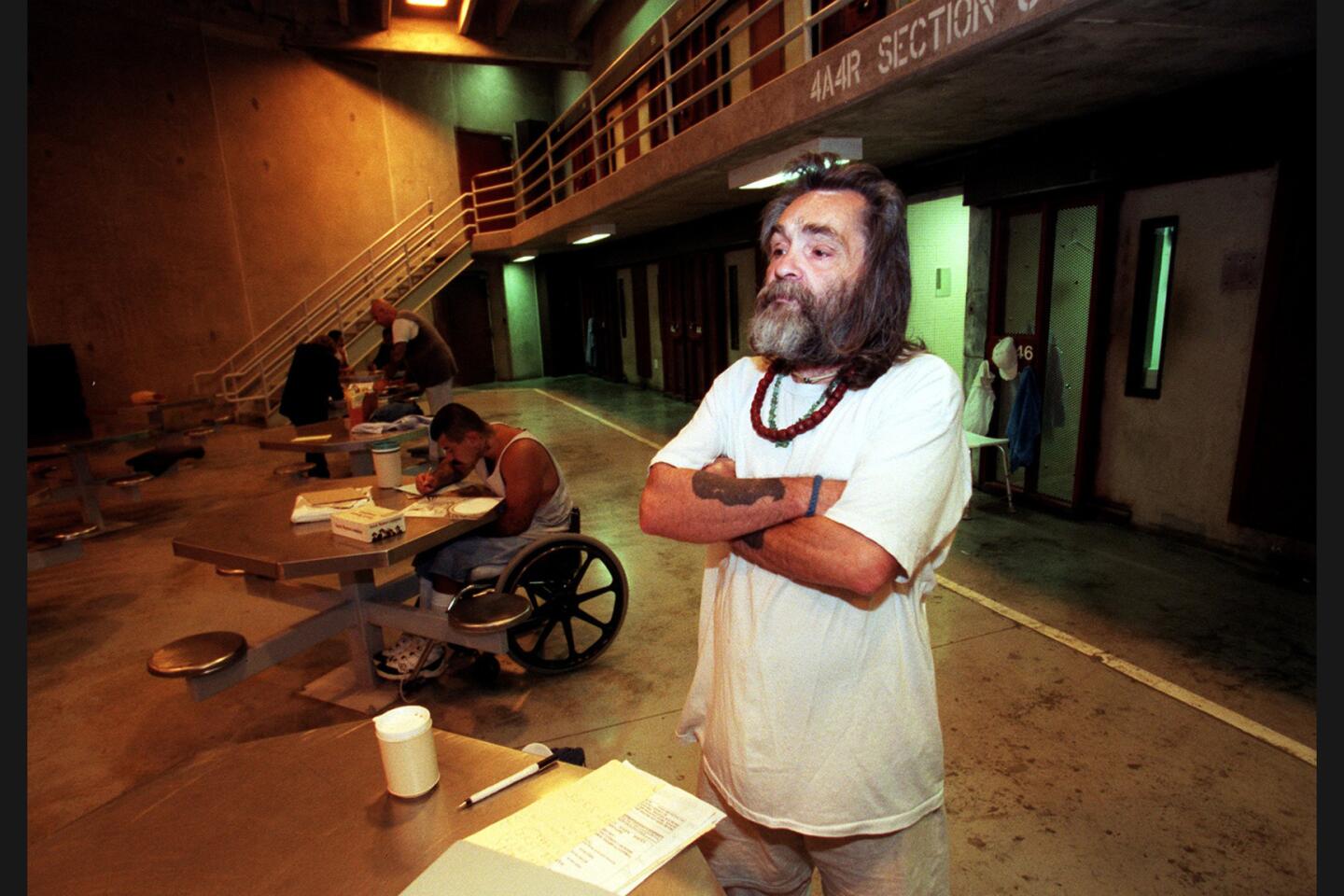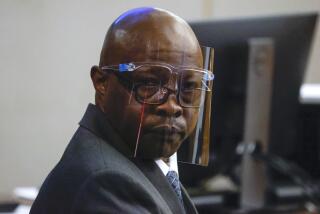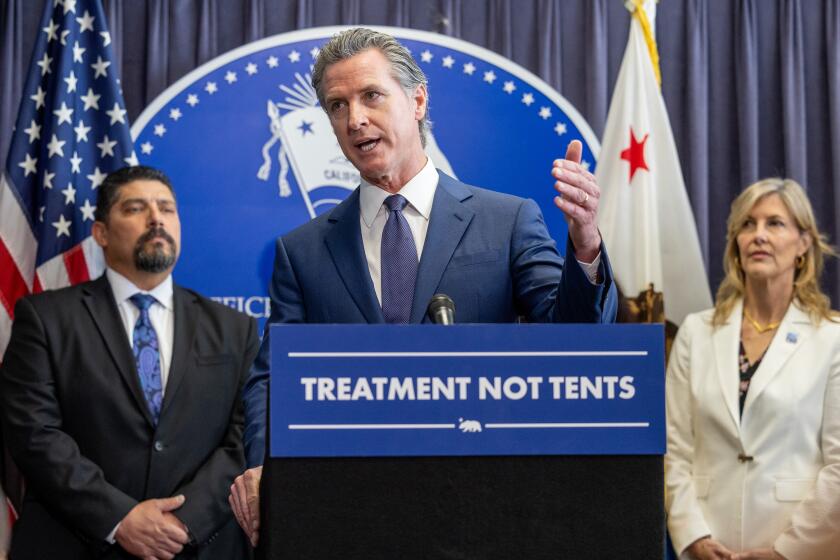Charles Manson ‘a pathetic, cowardly con man’ who should be remembered for that alone. Reactions to his death
As news of Charles Manson’s death spread late Sunday, many on social media said his death should be a time to remember and mourn his victims.
Michele Hanisee, president of the Assn. of Deputy District Attorneys, said in a statement that the prosecutor who put Manson behind bars “provided the most accurate summation: ‘Manson was an evil, sophisticated con man with twisted and warped moral values.’
“Today, Manson’s victims are the ones who should be remembered and mourned on the occasion of his death,” Hanisee said.
The sister of actress Sharon Tate, one of his victims, got a call from a prison official Sunday evening to notify her of Manson’s death, People magazine reported.
“I said a prayer for his soul,” Debra Tate told People.
On Twitter, Los Angeles City Councilman Mitch O’Farrell called Manson “a pathetic, cowardly con man” who should be remembered for that alone.
“The lives he & his followers cut mercilessly short are deserving of having their stories told,” O’Farrell said.
Manson and members of his “family” of followers were convicted of killing actress Sharon Tate and six other people during a bloody rampage in the Los Angeles area in August 1969. Prosecutors said Manson and his followers were trying to incite a race war he dubbed “Helter Skelter,” taken from the Beatles song of the same name.
Tate, the wife of director Roman Polanski, was 8 1/2 months pregnant when she was killed at her hilltop home in Benedict Canyon on Aug. 9, 1969. Four others were stabbed and shot to death the same night: Jay Sebring, 35; Voytek Frykowski, 32; Abigail Folger, 25, a coffee heiress; and Steven Parent, 18, a friend of Tate’s caretaker. The word “pig” was written on the front door in blood.
The next night, Manson rode with his followers to the Los Feliz home of Leno and Rosemary LaBianca, then left three members to kill the couple.
Manson initially was sentenced to death. But a 1972 ruling by the California Supreme Court found the state’s death penalty law at the time unconstitutional, and his sentence was changed to life in prison with the possibility of parole. He was denied parole 12 times.
alene.tchekmedyian@latimes.com
Twitter: @AleneTchek
More to Read
Start your day right
Sign up for Essential California for news, features and recommendations from the L.A. Times and beyond in your inbox six days a week.
You may occasionally receive promotional content from the Los Angeles Times.
